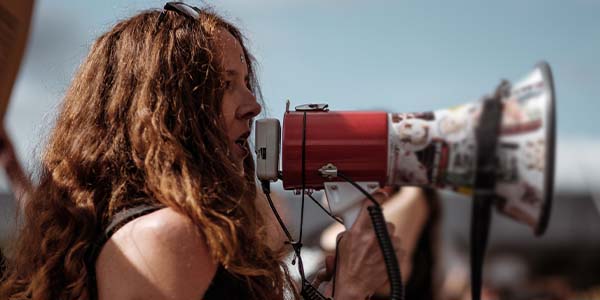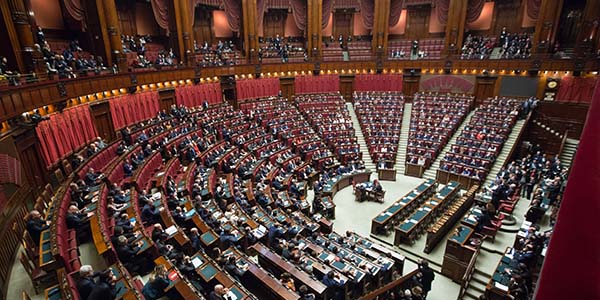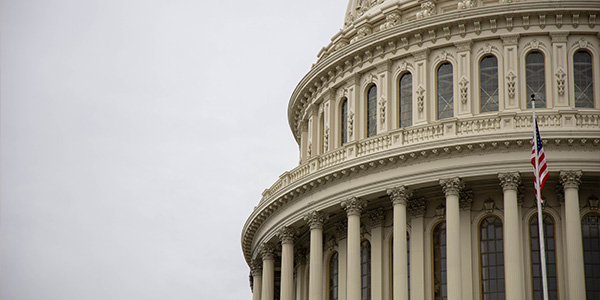The Importance of Context
I’m terrible at remembering the address (chapter and verse) of any particular line of Scripture. That leads me, more often than I’d like to admit, over to Google where I search the key words of the verse to get the verse’s accurate wording and address. For this topic, I wanted to begin by quoting a verse that went something like, “As much as it is up to you, live at peace with all men”.
And so, I Googled it.
Turns out the Scripture I was looking for was in Romans 12 and more accurately says, “If possible, so far as it depends on you, live peaceably with all” (ESV). Now, old Phil would have copied and pasted that and then moved on (I have a point to prove, after all). But, the Lord has done some work over the last few months and so instead I busted out the old paper Bible and went to Romans 12 and began reading.
Context, it turns out, is important.
Politics at Its Worst
At its core, politics is simply people coming together in a structured way in order to live alongside one another. It should be natural to expect tension and conflict along with politics, but I believe that deep down we all understand that our politics are broken.
That brokenness isn’t that there are people who disagree with you or I, the brokenness is that our tension and conflict drive us apart. No longer are we doing life alongside those in our communities, forced by circumstances to deal with our differences, instead we have found ways to retreat into circles and spaces of likeminded individuals that help us feel justified in our beliefs.
Until holiday dinners/family gatherings...
Then the powers of family bonds bring us into close proximity with those who’ve dwelt in different circles of likeminded people. Perhaps we are “mature enough” to avoid the talk of politics altogether or perhaps the table becomes an ideological battlefield where opposing viewpoints are thrown at each other with varying levels of aggression. Either way we all leave feeling anxious or frustrated or, perhaps, just tired.
This is politics at its worst, a tool of division that has, over the last decade, likely done more harm than good.

Politics at Its Best
I’ll say it again: politics, at its core, is simply people coming together in a structured way in order to live alongside one another.
When beginning this blog, my first act was to call up a friend of mine who, in many respects, is my political opposite. She voted for “the other guy”, if you catch my drift. Despite that, I work great alongside her and always enjoy our conversations… even the ones about politics.
When politics have come up, we clearly stated our thoughts, listened to the other person, found areas of common ground, admitted where we disagreed, and moved on. We don’t have a false comfort that could be ruined if someone brings up “that topic”, nor have we destroyed a friendship simply because we have different political affiliations and beliefs.
Honestly, I feel more comfortable having conversations with her, because we’ve already had the experiences of disagreeing and realizing we’re still friends.
You see, politics at its best isn’t a divider, but a unifier.
That’s great, you may be thinking. So happy for you Phil, that you’ve got a mature friend. But if only you’d met MY friends and family, then you’d understand…
Yeah, let’s chat about that.
Remember the Book of Romans?
Reading through any part of the book of Romans should be a challenge to us all, if for no other reason than the fact that Paul is writing to a church under persecution. I’m not a Biblical historian, but trust me when I say that the Christians in Rome were living in a time and land far more hostile than the United States today.
With that in mind, please stop for a moment and read through Romans 12. Seriously, stop reading this and go to the Scripture and read what Paul writes to the Church in Rome.
Can I be honest with you?
I don’t believe that Christians have the right to end friendships and family relationships over issues of politics, no matter how passionate we feel about them. Of course, others may distance themselves from us and we can’t force them to return, but we ourselves simply cannot say “I choose to no longer do life with you because you think _______.”
There is so much that could be said about how this chapter in Romans applies to our conversations with friends and family around the issues of politics, but let me draw out what I feel the Lord wants you to read today.
Bless and Do Not Curse Them
“Bless those who persecute you, bless and do not curse them,” (Romans 12: 14 ESV).
When talking about this issue with my friend, we realized that often when we talk about politics with those we disagree with, we have the tendency to stop seeing them, and instead see the issue.
Let me explain.
Let’s say I disagree with someone on the issue of taxation. Perhaps I believe in increasing taxation in order to help those in need (take a deep breathe, and just follow the example for a moment). I tell a friend this, and he disagrees, saying he believes taxes should be cut in order to allow capitalism to thrive, and allow all people to excel based on their own merits.
Now, in the course of conversation, it can be easy for me to take my feelings about the issue and transplant them on the person. Perhaps I feel his beliefs on taxes would increase poverty and hurt people, and so I begin to see him as someone who hates the poor and wants to abuse them.
Now, as you read that, you know that’s not rational. His feelings on taxation do not allow me to make character judgments.
And yet… we do it, don’t we? Sometimes, at least.
If I’m honest with you, life is easier that way. I mean, putting someone in a mental box labelled “Hate the Poor” is faster and easier than wrestling with the complexities of someone who is made in the image of the Creator.
Alright, so what do we do instead?
Well, the Lord tells us through Paul to “bless them”. For me, I take this very literally. When speaking with someone I disagree with, especially a family member or another believer, I pray for them in my mind as we speak. Not that God would give me the words to convince them of what I think, but I pray for them.
Remember my friend who is my political opposite? More than once in our discussions about politics I remember praying in my mind over her and her husband, asking the Lord to bless them. It kept me grounded, and focused on my friend and her status as a daughter of God and not someone “from that party”.
Folks, this shouldn’t be abnormal for us Christians. On the cross, literally as he was dying, Jesus looked up to heaven and prayed, “Father, forgive them, for they don’t know what they are doing,” (Luke 23:24, ESV).
You and I should repent for every time we’ve looked at a friend or family member (or stranger) and thought unkind or hateful thoughts on them for any reason, least of all their political stances.

Rejoicing and Weeping
“Rejoice with those who rejoice, weep with those who weep.,” (Romans 12: 15, ESV).
I’ve felt, on more than one occasion, entitled to feel however I want to feel. I mean, they are my feelings, after all. And yet, making my body a “living sacrifice” (Romans 12:1, ESV) doesn’t leave much room for anything staying mine.
When we speak to loved ones about politics this holiday season, what would it look like if we tried to lovingly align our emotions to theirs? Now, I want to be careful, because this requires much wisdom and prayer, but please hear me out.
We should not become angry and fearful when those around us are angry and fearful.
But we should put aside our own feelings, our own emotions, for the sake of others. Do you have a relative who is excited about how things are going? Find things to be joyful about alongside them. Is someone scared or sorrowful about what is going on? Can you hug them, and be sad alongside them?
Is someone angry? Can you be the calm to their storm, not working to convince them they are wrong but working to let them see the peace of God?
This doesn’t mean we have to conform our political beliefs to those around us, but it does mean that we should agree with Paul when he says, “I have become all things to all people, that by all means I might save some,” (1 Corinthians 9:22, ESV).
Let’s work to not be controlled by our emotions, but instead use our emotions as just another tool to love and serve those before us.
Never Be Wise in Your Own Sight
“Live in harmony with one another. Do not be haughty, but associate with the lowly. Never be wise in your own sight. Repay no one evil for evil, but give thought to do what is honorable in the sight of all,” (Romans 12: 16-17, ESV).
It’s interesting to me that Paul writes for us to “live in harmony with one another” and then immediately says “do not be haughty”.
These verses above paint us a picture of what we wish was, but we know usually isn’t.
Instead, conversations around politics today are anything but harmonious. Instead they are filled with people like us who speak with arrogant tones to make others feel stupid, considering ourselves the only ones who “really understand”, and quickly jabbing back at one another in order to hurt (unless you know that saying nothing will hurt more, then perhaps we do that).
But Christian, you are called to so much more!
Instead we are called to look for ways to have peace and harmony. Remember, Jesus said, “Blessed are the peacemakers, for they will be called children of God” (Matthew 5:9, ESV). Should we claim the title “Children of God” so readily when we also won’t work for peace?
Also remember to be totally humble when you speak to someone who disagrees with you. Real talk for a moment, most political issues are so complicated that anyone who is certain they are correct is almost assuredly wrong. Turns out that running a government of millions and millions of sinners is really not simple at all. We don’t have the answers, frankly, so let’s not posture like we do.
And never repay anger and hate with anger and hate, but instead pour out more and more love. When you speak to someone who says hurtful and hateful things to you, pray for them and respond back with kindness. Try to find something to compliment them on sometime that night, pray for them and their marriage and their children. Pray for the Lord to bless their socks off!
That’s how we repay evil.

Overcome Evil with Good
“If possible, so far as it depends on you, live peaceably with all. Beloved, never avenge yourselves, but leave it to the wrath of God, for it is written, “Vengeance is mine, I will repay, says the Lord.” To the contrary, ‘if your enemy is hungry, feed him; if he is thirsty, give him something to drink; for by so doing you will heap burning coals on his head.’ Do not be overcome by evil, but overcome evil with good.” (Romans 12: 18-21, ESV).
I’m humbled to think about how often I want to use the methods of the world to solve its problems. We look to Christian celebrities as role models, instead of our local brothers and sisters who’ve lived the quiet life Paul exhorted them to. We look to Christian books, movies, and music to proclaim our thoughts and feelings, instead of going from town to town ourselves to proclaim the good news. We look to earthly powers and tools to provide protection for us and own family, instead of trusting in the Lord (side note, ever realize how we seem to use the “trust but verify” thought process with the Lord?).
I’m not saying these things above are bad or evil, but I think we shouldn’t be shocked when they don’t work.
God simply doesn’t use the same methods as the world.
This holiday season, when the news and politics rise to the forefront of conversation, do something difficult. Look the person you disagree with in the eyes, and say something loving and true.
It’s unlikely that the political enemies you have today are literally “hungry” and “thirsty”, but they are likely starving for the love that Jesus brings through his people. If they are a brother or sister in Christ, they are likely starving for the unity and love of community (don’t forget that the churches in our nation are divided as well as our families).
Give freely to those you disagree with, to those who have said evil against you, and to those who wish you ill.
Drop your defenses, those walls you erect to protect yourself, and trust the Lord to defend you.
Don’t be afraid when in the moment it looks like evil will triumph, that the anger or hate of another person is too much. Trust in the Lord, and trust that pouring out love and pouring out goodness will overcome evil.






